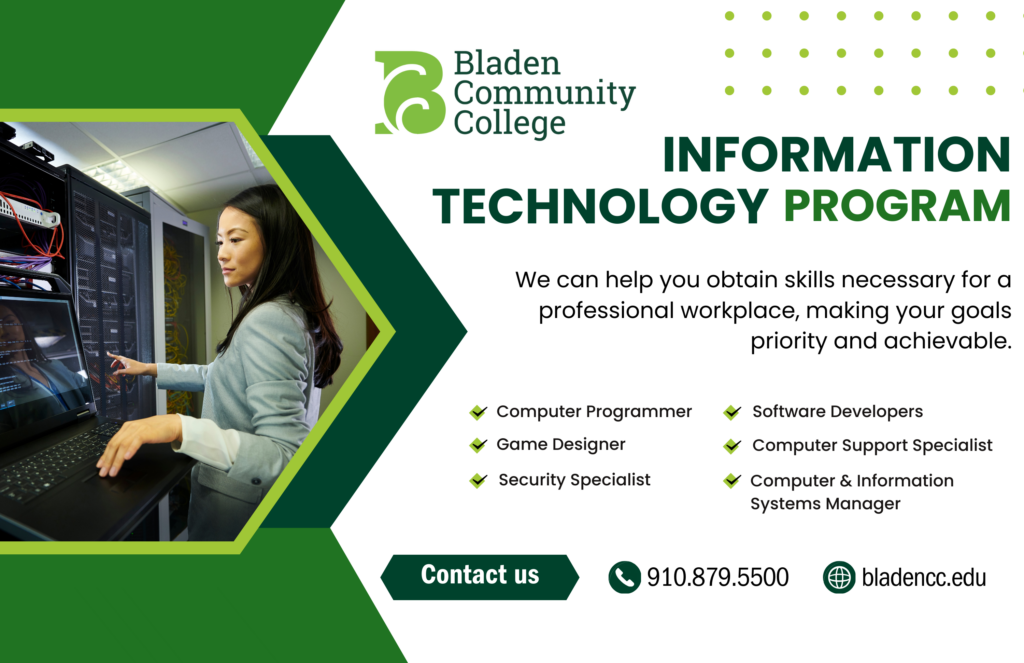
Information Technology
The Information Technology (IT) curriculum prepares graduates for employment in the technology sector as designers, testers, support technicians, system administrators, developers, or programmers who use computer software and/or hardware to design, process, implement and manage information systems in specialties such as database services, security, business intelligence, healthcare informatics and others depending on the technical path selected within this curriculum. Course work includes development of a student’s ability to create, store, communicate, exchange and use information to solve technical issues related to information support and services, interactive media, network systems, programming and software development, information security and other emerging technologies based on the selected area of study. Graduates should qualify for employment in entry-level positions with businesses, educational systems, and governmental agencies which rely on computer systems to design and manage information. The program will incorporate the competencies of industry-recognized certification exams.
This program leads to an Associate in Applied Science Degree. To be eligible for graduation, the student must have satisfactorily completed the course requirements as outlined below.
To qualify for admission into this program, the applicant must have a high school diploma or the equivalent.
Locklear, Dr. Brittany
For More Information
Click Below
Our Student Success Story!

This is my Story!
This Success Story could be all about “your experience.” Let’s make it happen!
“Successful college students are proactive, resilient, and continuously curious. They manage their time well, balancing academics with personal growth, and actively seek out resources to enhance their learning experience. Engaged in both campus life and their own personal development, they foster connections, embrace challenges, and build skills that prepare them for a thriving future beyond graduation.”
“These students set clear goals and remain focused on achieving them, yet they’re flexible enough to adapt when challenges arise. They leverage opportunities like internships, study groups, and extracurricular activities to enrich their academic journey. Successful college students are collaborative, supporting their peers while cultivating a strong network that serves them both during and after their college years. With a growth mindset, they view setbacks as learning experiences and persistently push forward, knowing that the skills they build now will fuel their success in the real world.”
